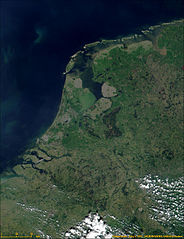The Open Society released a surprisingly positive report on the history and effectiveness of Dutch drug policy, Coffee Shops and Compromise: Separated Illicit Drug Markets in the Netherlands
Just to highlight a few of its conclusions:
- Far fewer arrests for minor drug offenses occur.
While it was recently reported
that someone is arrested for marijuana possession in the U.S. every 42
seconds, Dutch citizens have generally been spared the burden of
criminal records for minor, nonviolent offenses. According to one comparison,
in 2005 there were 269 marijuana possession arrests for every 100,000
citizens in the United States, 206 in the United Kingdom, 225 in France,
and just 19 in the Netherlands."
- Lighter enforcement did not lead to more drug use.
About 25.7 percent of
Dutch citizens reported having used marijuana at least once, which is
on par with the European average. In the comparatively strict United
Kingdom, the rate is 30.2 percent and in the United States it is a
whopping 41.9 percent."
I have to say that this resembles my personal experience. Whenever I speak with American friends, drugs seem to have been part of their high-school/college experience, while I can't say the same of my Dutch friends or myself: drugs just were not part of our universe.
The report continues:
"While coffee shops generate about €400 million ($512 million USD) in
annual revenue their main purposes were public health and social
inclusion. Thus, the Netherlands invested heavily in treatment,
prevention and harm reduction."
Finally, the Open Society report says: "The Netherlands has virtually eliminated injecting drug use as a
transmission of HIV and enjoys the lowest rate of problem drug use in
Europe. "
It seems that the Netherlands has come a long way since a critical article in the magazine Foreign Affairs, "Holland's Half-Baked Drugs Experiment, the Narcotics Capital of Europe" which stated in June 1999: "Holland ( in the words of senior customs and police officers in the United Kingdom, France, and Belgium ) has become 'the drugs capital of western Europe"--and not just of those soft drugs depenalized by the Dutch Parliament but also of hard drugs such as heroin, cocaine, and now ecstasy. "
" As a senior French narcotics officer puts it, "Holland is Europe's drug supermarket. Drugs of all kinds are freely available there. The price is cheap. Your chances of getting caught with them are minimal, and you can carry them home across our customs-free borders without a care."
That article ends with a quote by a Dutch public health official:
"I would not be proud if we were to be seen by our neighbors as a narco-state," says the Public Health Ministry's Dr. Bunning. "We don't want people to come here just to gawk at the girls in the windows and get stoned. We have a culture and a history of which we are proud." He sighs. "With drugs we are in the realm of theory. There is no simple solution to the drug problem. No one nation, not the U.S., not England, has the answer. But our solution in Holland is not ideal either."
According to the Open Society, it seems that the situation has changed and improved in the Netherlands over the last 14 years. I wish I could be certain of that. I still see too many news reports about synthetic drugs such as ecstasy being produced in the Netherlands and distributed from there around the world. So maybe the Dutch don't use as much marijuana as other countries, but it seems they still play a role in production and distribution of synthetic drugs.

No comments:
Post a Comment